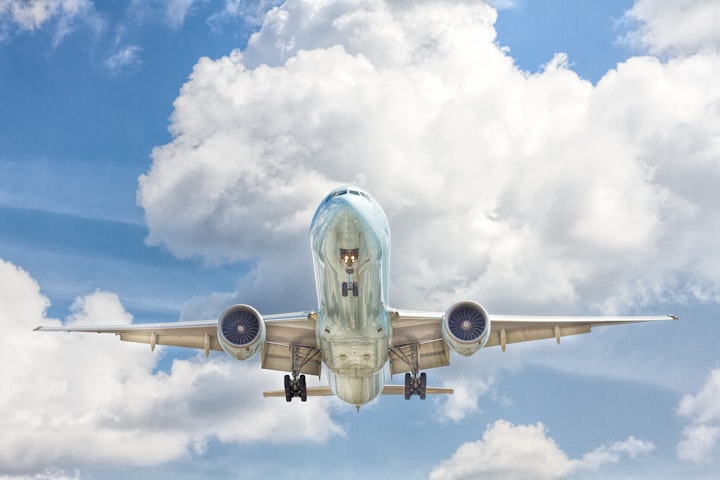The Importance of Drug Testing in Aviation Safety
This content provides a detailed insight into the importance of drug testing in aviation, balancing the technical aspects with the broader implications on the industry and public trust.

The realm of aviation, characterized by its high stakes and zero-margin for error, demands the utmost level of safety and precision. One of the critical aspects underpinning this safety framework is the rigorous and systematic approach to drug testing among aviation professionals.
This article delves into the importance of drug testing in aviation, exploring its impact, challenges, and future prospects in maintaining the sanctity of air travel.
The Imperative of Drug Testing in Aviation
1. Ensuring Pilot Competence and Reliability: The primary responsibility of a pilot is not just to navigate an aircraft but to ensure the safety of all passengers on board. Drug use can impair cognitive functions, reaction times, and decision-making abilities, which are vital in high-pressure situations. Regular drug testing helps ensure that pilots maintain the necessary mental acuity and physical readiness to perform their duties.
2. Upholding Industry Standards and Passenger Trust: Aviation is an industry built on precision and trust. The slightest doubt about the sobriety of aviation professionals can have far-reaching implications on passenger confidence and the industry's reputation. Drug testing is, therefore, not just a regulatory requirement but a cornerstone in maintaining public trust in air travel.
3. Compliance with Regulatory Bodies: Organizations like the Federal Aviation Administration (FAA) and the International Civil Aviation Organization (ICAO) mandate stringent drug testing protocols. These regulations are not mere formalities but are designed to uphold a global standard in aviation safety, which drug testing rigorously enforces.
Challenges in Implementing Drug Testing
Despite its importance, the implementation of drug testing in aviation faces several challenges:
1. Privacy Concerns: Balancing the need for drug testing with respect for individual privacy rights is a delicate matter. It's crucial to conduct testing in a manner that respects the dignity of the personnel while ensuring compliance with safety standards.
2. Evolving Nature of Substance Abuse: The continuous evolution of recreational drugs and the emergence of new substances make it challenging to keep drug testing methods up-to-date. The aviation industry must stay ahead of these trends to ensure the effectiveness of their testing programs.
3. Global Consistency: With aviation being a global industry, ensuring consistent drug testing standards across different countries and airlines is challenging. Harmonizing these practices globally is crucial for maintaining uniform safety standards.
Future Directions and Technologies
Looking forward, the aviation industry is poised to adopt more advanced drug testing technologies and methodologies. Innovations like rapid testing kits, non-invasive sampling methods, and AI-driven analysis could revolutionize how drug testing is conducted, making it more efficient and less intrusive.
Furthermore, the industry is moving towards a more holistic approach to personnel health. This includes not just drug testing but also mental health assessments, regular medical check-ups, and wellness programs. Such a comprehensive approach ensures that aviation professionals are not just drug-free but are also in the best mental and physical condition to perform their duties.
Conclusion
In conclusion, drug testing in aviation is not just a regulatory requirement but a critical component of the industry's commitment to safety. While there are challenges in its implementation, the evolution of testing methodologies and a holistic approach to health and wellness are paving the way for a safer and more reliable aviation industry. As we continue to entrust our lives to the hands of aviation professionals, it's reassuring to know that the industry remains steadfast in its commitment to maintaining the highest safety standards, with drug testing playing a pivotal role in this endeavor.
FAQ:
1. Why is drug testing important in aviation?
Drug testing in aviation is crucial for ensuring the safety and reliability of flight operations. It helps confirm that aviation professionals, particularly pilots and air traffic controllers, are not under the influence of substances that could impair their judgment, reaction time, and decision-making abilities, which are vital for safe flying.
2. Who is required to undergo drug testing in the aviation industry?
Typically, all safety-sensitive personnel in the aviation industry are required to undergo drug testing. This includes pilots, flight attendants, aircraft maintenance personnel, air traffic controllers, and anyone else whose job directly affects the safety of flight operations.
3. What substances are tested for in aviation drug tests?
Aviation drug tests commonly screen for a range of substances, including but not limited to, marijuana, cocaine, opiates, amphetamines, and phencyclidine (PCP). The specific substances tested can vary based on regulatory requirements and individual airline policies.
4. How often are drug tests conducted in the aviation industry?
The frequency of drug testing can vary. It may include pre-employment testing, random testing, reasonable suspicion testing, post-accident testing, and follow-up testing for individuals who have returned to work after failing a drug test.
5. What are the consequences of failing a drug test in the aviation industry?
Failing a drug test can have serious consequences, including suspension or revocation of aviation licenses, termination of employment, and legal ramifications. The specific consequences depend on the airline's policies and the regulations of the aviation authority in the region.
6. Can prescription medications affect drug test results in aviation?
Yes, some prescription medications can affect drug test results. Aviation professionals are advised to inform the testing authorities about any legal prescription drugs they are taking. The medical review officer will consider these medications during the evaluation of drug test results.
7. How does the aviation industry ensure the privacy and rights of employees during drug testing?
The aviation industry adheres to strict protocols to ensure the privacy and rights of employees during drug testing. This includes conducting tests in a respectful manner, maintaining confidentiality of results, and providing a process for appealing false-positive results.
8. Are there any new developments in drug testing methods in aviation?
Advances in drug testing include the development of more sensitive and rapid testing technologies, non-invasive testing methods, and the use of artificial intelligence for more accurate analysis. These advancements aim to make drug testing more efficient, accurate, and less intrusive.
9. How do international regulations affect drug testing in aviation?
International regulations can impact drug testing in aviation by setting minimum standards that all countries must adhere to. However, individual countries may have additional or more stringent requirements. Airlines operating internationally must comply with both international standards and the regulations of each country they operate in.
10. Is there an appeal process for those who fail a drug test in aviation?
Yes, there typically is an appeal process. If an individual fails a drug test, they can request a retest or provide evidence that might explain a false positive, such as a prescription for a medication. The specifics of the appeal process depend on the airline and the governing aviation authority.
About the Creator
Enjoyed the story? Support the Creator.
Subscribe for free to receive all their stories in your feed. You could also pledge your support or give them a one-off tip, letting them know you appreciate their work.






Comments
There are no comments for this story
Be the first to respond and start the conversation.